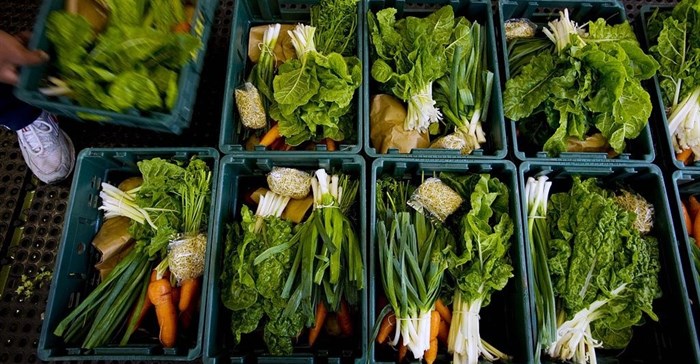Women in Gauteng, Limpopo, and the Western Cape are tackling climate change and agriculture issues, as World Food Day is being celebrated across the globe under the theme "Climate is changing. Food and agriculture must too", with innovative programmes in their communities.
The women are implementing resilient climate change adaptation and ecological organic farming projects that fight poverty and hunger through sustainable agriculture practices such as food gardens and renewable energy, despite the aftermath of the El Niño-induced drought in the region.
These practices form part of a European Union (EU) funded project called Sustainable Use of Natural Resources to Improve Resilience in South Africa: a Grassroots Women’s Initiative, implemented by Earthlife Africa JHB, GenderCC Southern Africa in partnership with Oxfam. Such efforts strengthen the struggles to realise the right to food in South Africa, whilst also highlighting the challenges of climate change.
The project’s aims are to benefit women across eight sites in three provinces: Gauteng – Magaliesburg, KwaThema, Vaal and Soweto; Limpopo – Giyani and Tzaneen; Western Cape – Green Park and Khayelitsha.
Research commissioned by Oxfam shows some disturbing truths about what hunger actually means: a child trying to feed her four siblings on R6 a day, a woman who is taunted for taking low paid jobs and being poor, a man who feels less of a father for not being able to feed his children properly. However, in this project the feedback and reflections of the project participants and partners have been rather positive.
“The project helped me a lot, now I am able to provide for my family without always expecting something from the government,” said Alice Dhladhla, a member of the Community Working Group (CWG) from Khangezile Primary School, Kwa-Thema. “Poverty needs to be tackled and sustainable agriculture is a step towards fighting poverty,” said Dhladhla.
Food gardens help fight hunger and poverty
The vegetable gardens are the best performing component of the project - despite the challenges of the drought they have become a source of income.
“The money we get from selling our vegetables helps to feed our families. We also use it to buy seeds for our garden,” said Merriam Shashape Community Working Group member from Mphethuto Primary School, Magaliesburg.
Food produced in the gardens and home gardens benefited the CWG members and the learners who are recipients of the school feeding programmes. “The crops harvested in our food garden are given to the pre-schools feeding scheme to feed the 120 learners,” said Khunjulwa Mtyhida a CWG member at Founders Educare Pre-school in Makhaza, Khayelitsha.
“In our community, poverty is a major concern. The project has helped us to put food on our tables to feed our families” said Kido Mafisa, a CWG member at Motsewapele Primary School, Evaton. “We now worry less about what we are going to eat,” she adds
The need that this project is responding to is immense. Oxfam’s 2014 Inequality Report found that one in four people in South Africa are faced with hunger on a daily basis, whilst over half of the population are faced with the growing risk of hunger. The projects described above are part of Oxfam’s strategic focus on strengthening campaigns and advocacy on Food and Climate Justice issues.
We indeed live in a society where even access to food is characterised by inequity and injustice. The projects build a body of evidence that influences and persuades policymakers, companies, and individuals to help end the scourge of hunger and build the resilience of people whose right to food is threatened.










































